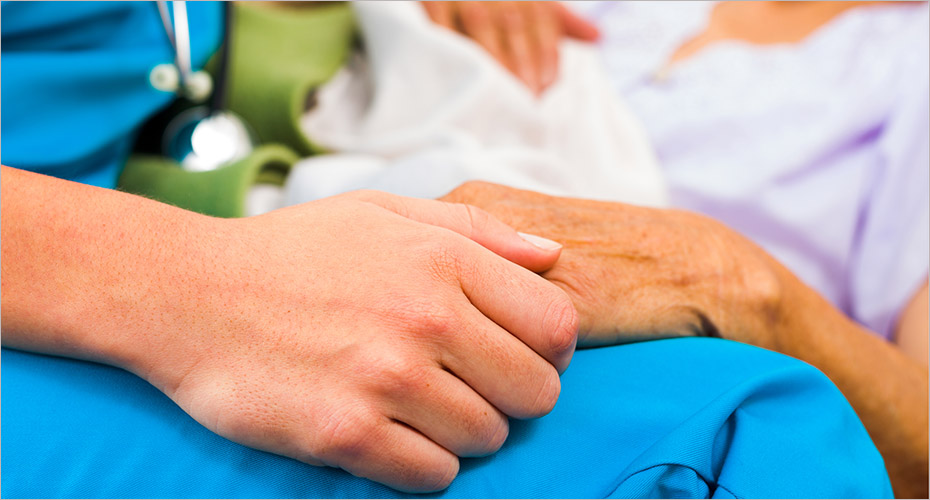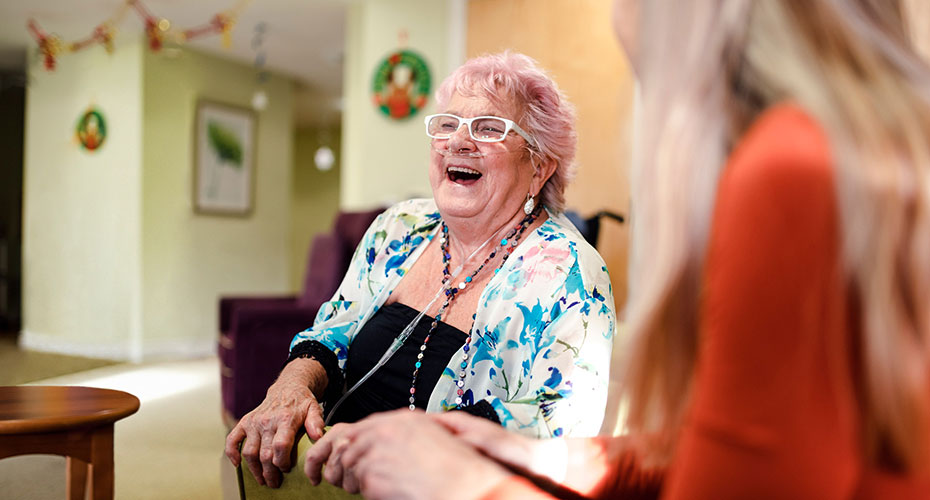Public Health Economics
Who we are
| Professor Antonieta Medina-Lara | Professor of Public Health Economics |
| Dr Daniel Derbyshire | Postdoctoral Research Fellow in Public Health Economics |
| Nia Morrish | Postdoctoral Research Fellow in Public Health Economics |
| Professor Richard Smith | Professor of Public Health Economics |
| Associate Professor Tim Taylor | Associate Professor in Environmental and Public Health Economics |
| Sophie Hearn | PhD student |
| Yuwen Li | PhD student |
| Francis Okello | PhD student |
| Bethany Parkes | PhD student |
| Karen Ullian | PhD student |
Our health research methods
- Econometric Analysis
- Micro-econometric Demand Analysis
- Analysis of Big Data
- Macroeconomics in Health
- Discrete Choice Experiments
- Cost-Effectiveness Analysis
- Decision Analytical Modelling
- Health Inequalities
- Evidence Synthesis
We work in partnership with the Health Economics group, within Health and Community Sciences.
Our research
Our current research covers four key areas: food, employment, global health and mental wellbeing.
Current projects:
Food

Employment

Global health

Publications
Derbyshire DW, Keay T. “But what do you really think?” Nurses' contrasting explicit and implicit attitudes towards people with disabilities using the implicit association test. J Clin Nurs 2024 Mar 7. Online ahead of print. Link
Rahilly J, Williams A, Chang M, Cummins S, Derbyshire D, Hassan S, Huang Y, Keeble M, Liu B, Medina-Lara A, Mytton O, Savory B, Schiff A, Sharp SJ, Smith R, Thompson C, White M, Adams J, Burgoine T. Changes in the number and outcome of takeaway food outlet planning applications in response to adoption of management zones around schools in England: A time series analysis. Health Place 2024 Apr 1;87:103237. Online ahead of print. Link
Grellier J, White MP, de Bell S, Brousse O, Elliott LR, Fleming LE, Heaviside C, Simpson C, Taylor T, Wheeler BW, Lovell R. Valuing the health benefits of nature-based recreational physical activity in England. Environ Int 2024 Apr 16;187:108667. Online ahead of print. Link
Derbyshire DW, Jeanes E, Khedmati Morasae E, Reh S, Rogers M. Employer-focused interventions targeting disability employment: A systematic review. Soc Sci Med 2024 Apr;347:116742. Link
Polden M, Jones A, Essman M, Adams J, Bishop T, Burgoine T, Donohue A, Sharp S, White M, Smith R, Robinson E. Point-of-choice kilocalorie labelling practices in large, out-of-home food businesses: a preobservational versus post observational study of labelling practices following implementation of The Calorie Labelling (Out of Home Sector) (England) Regulations 2021. BMJ Open 2024 Apr 11;14(4):e080405. Link
Morrish N, Snowsill T, Dodman S, Medina-Lara A. Preferences for Genetic Testing to Predict the Risk of Developing Hereditary Cancer: A Systematic Review of Discrete Choice Experiments. Med Decis Making 2024 Apr;44(3):252-268. Link
Rahilly J, Amies-Cull B, Chang M, Cummins S, Derbyshire D, Hassan S, Huang Y, Keeble M, Liu B, Medina-Lara A, Mytton O, Rogers N, Savory B, Schiff A, Sharp SJ, Smith R, Thompson C, White M, Adams J, Burgoine T. Changes in the number of new takeaway food outlets associated with adoption of management zones around schools: A natural experimental evaluation in England. Soc Sci Med – Popul Health 2024 Mar 19;26:101646. Link
Cobiac L, Adams J, Cummins S, Smith RD, White M, Scarborough P. Impact of the UK soft drinks industry levy on health and health inequalities in children and adolescents in England: An interrupted time series analysis and population health modelling study. PLoS Med 2024 Mar 28;21(3):e1004371. Link
Khedmati Morasae E, Derbyshire DW, Amini P, Ebrahimi T. Social determinants of spatial inequalities in COVID-19 outcomes across England: A multiscale geographically weighted regression analysis. Soc Sci Med – Popul Health 2024 Mar;25:101621. Link
Jones CP, Lawlor ER, Forde H, Theis DRZ, Cummins S, Adams J, Smith R, Rayner M, Rutter H, Penney TL, Alliot O, Armitage S, White M. Parliamentary reaction to the announcement and implementation of the UK Soft Drinks Industry Levy: applied thematic analysis of 2016-2020 parliamentary debates. Public Health Nutr
2024 Jan 24;27(1):e51. Link
Milsom P, Tomoaia-Cotisel A, Smith R, Modisenyane SM, Walls H. Using System Dynamics to Understand Transnational Corporate Power in Diet-Related Non-communicable Disease Prevention Policy-Making: A Case Study of South Africa. Int J Health Policy Manag 2023;12:7641. Link
Rogers NT, Pell D, Mytton OT, Penney TL, Briggs A, Cummins S, Jones C, Rayner M, Rutter H, Scarborough P, Sharp S, Smith R, White M, Adams J. Changes in soft drinks purchased by British households associated with the UK soft drinks industry levy: a controlled interrupted time series analysis. BMJ Open 2023 Dec 5;13(12):e077059. Link
Derbyshire DW, Keay T. Nurses' implicit and explicit attitudes towards transgender people and the need for trans-affirming care. Heliyon 2023 Nov 2;9(11):e20762. Link
Morrish N, Choudhury S, Medina-Lara A. What works in interventions targeting loneliness: a systematic review of intervention characteristics. BMC Public Health 2023 Nov 9;23(1):2214. Link
Essman M, Robinson E, Jones A, White M, Adams J, Smith RD, Bishop T, Burgoine T, Polden M, Vanderlee L, Hammond D. A multi-country comparison of jurisdictions with and without mandatory nutrition labelling policies in restaurants: analysis of behaviours associated with menu labelling in the 2019 International Food Policy Study. Public Health Nutr 2023 Nov;26(11):2595-2606. Link
Walls H, Johnston D, Matita M, Kamwanja T, Smith R, Nanama S.
The politics of agricultural policy and nutrition: A case study of Malawi's Farm Input Subsidy Programme (FISP). PLOS Glob Public Health 2023 Oct 11;3(10):e0002410. Link
Bethune RM, Ball S, Doran N, Harris M, Medina-Lara A, Fornasiero M, Hill M, Lang I,McGregor-Harper J, Sheaff R. How Safety Culture Surveys Influence the Quality and Safety of Healthcare Organisations. Cureus 2023 Sep 03, 15(9): e44603. Link
Medina-Lara A. Clinical predictors of encephalitis in UK adults – a multi-centre prospective observational cohort study. PLoS One 2023 Aug 23;18(8):e0282645 Link
Jones CP, Forde H, Penney TL, van Tulleken D, Cummins S, Adams J, Law C, Rutter H, Smith R, White M. Industry views of the UK Soft Drinks Industry Levy: a thematic analysis of elite interviews with food and drink industry professionals, 2018-2020. BMJ Open 2023 Aug 9;13(8):e072223. Link
Blake J, Aryankhesal A, Allan L, Ballard C, Briscoe S, Broomfield N, Green L, Hilton A, van Horik J, Khondoker M, Killett A, Lazar A, Litherland R, Livingston G, Maidment I, Medina-Lara A, Megson M, Reeve J, Rook G, Scott S, Shepstone L, Wong G, Fox C. Understanding primary care diagnosis and management of sleep disturbance for people with dementia or mild cognitive impairment: a realist review. Br J Gen Pract 2023 Jul;73(suppl 1):bjgp23X734169. Link
Breeze PR, Squires H, Ennis K, Meier P, Hayes K, Lomax N, Shiell A, Kee F, de Vocht F, O'Flaherty M, Gilbert N, Purshouse R, Robinson S, Dodd PJ, Strong M, Paisley S, Smith R, Briggs A, Shahab L, Occhipinti JA, Lawson K, Bayley T, Smith R, Boyd J, Kadirkamanathan V, Cookson R, Hernandez-Alava M, Jackson CH, Karapici A, Sassi F, Scarborough P, Siebert U, Silverman E, Vale L, Walsh C, Brennan A. Guidance on the use of complex systems models for economic evaluations of public health interventions. Health Econ 2023 Jul;32(7):1603-1625. Link
Polden M, Jones A, Adams J, Bishop T, Burgoine T, Essman M, Sharp S, Smith RD, White M, Robinson E. Kilocalorie labelling in the out-of-home sector: An observational study of business practices and consumer behaviour prior to implementation of mandatory calorie labelling in England, 2022. BMC Public Health 2023 Jun 6;23(1):1088. Link
Heather A, Goodwin E, Green C, Morrish N, Ukoumunne OC, Middleton RM, Hawton A. Multiple Sclerosis Health-Related Quality of Life Utility Values from the UK MS Register. Multiple Sclerosis J 2023 Jun;9(2) Link
Taylor T, Garside R, Attrill M, Fleming L. Assessing the value of urban green and blue spaces for health and well-being. World Health Organization WHO/EURO:2023-7508-47275-69347 Link
Wheat H, Weston L, Oh TM, Morgan-Trimmer S, Ingram W, Griffiths S, Sheaff R, Clarkson P, Medina-Lara A, Musicha C, Spicer S, Ukoumunne O, Allgar V, Creanor S, Clark M, Quinn C, Gude A, McCabe R, Batool S, Smith L, Richards D, Shafi H, Warwick B, Lasrado R, Hussain B, Jones H, Dalkin S, Bate A, Sherriff I, Robinson L, Byng R. Longitudinal realist evaluation of the dementia PersonAlised care team (D-PACT) intervention: protocol. BJGP Open 2023 May 9:BJGPO.2023.0019. Online ahead of print. Link
Quinn T, Heath S, Adger WN, Abu M, Butler C, Codjoe SNA, Horvath C, Martinez-Juarez P, Morrissey K, Murphy C, Smith R. Health and wellbeing implications of adaptation to flood risk. Ambio 2023 May;52(5):952-962. Link
Chebet M, Mukunya D, Burgoine K, Kühl MJ, Wang D, Medina-Lara A, Faragher EB, Odiit A, Olupot-Olupot P, Stadskleiv Engebretsen IM, Waniaye JB, Wandabwa J, Tylleskär T, Weeks A. A cluster randomised trial to evaluate the effectiveness of household alcohol-based hand rub for the prevention of sepsis, diarrhoea, and pneumonia in Ugandan infants (the BabyGel trial): a study protocol. Trials 2023 Apr 17;24(1):279. Link
Derbyshire D, Spencer A, Grosskopf B, Blackmore T. The Importance of Disability Representation to Address Implicit Bias in the Workplace Frontiers Rehab Sci: Disabil Rehab Inclusion 2023 Mar 22;4:1048432. Link
Borger T, Maccagnan A, Elliott L, White M, Taylor T. Was the trip worth it? Consistency between decision and experienced utility assessments of recreational nature visits Am J Agri Econ 2023 Mar; 105(2)525-545 Link
Marten R, Hanefeld J, Smith RD. How states engage in and exercise power in global health: Indonesian and Japanese engagement in the conceptualization of Sustainable Development Goal 3 Soc Sci Med 2023 Mar;321:115455. Link
Penney TL, Jones CP, Pell D, Cummins S, Adams J, Forde H, Mytton O, Rutter H, Smith R, White M. Reactions of industry and associated organisations to the announcement of the UK Soft Drinks Industry Levy: longitudinal thematic analysis of UK media articles, 2016-18. BMC Public Health 2023 Feb 7;23(1):280. Link
Walls H, Johnston D, Matita M, Chirwa E, Mazalale J, Quaife M, Kamwanja T, Smith RD. How effectively might agricultural input subsidies improve nutrition? A case study of Malawi’s Farm Input Subsidy Programme (FISP). Food Security 2023 Feb;15:21-39 Link
Watt T, Beckert W, Smith R, Cornelsen L. The impact of price promotions on sales of unhealthy food and drink products in British retail stores. Health Econ 2023 Jan;32(1):25-46. Link
Johnes C, Sharpe RA, Menneer T, Taylor T, Nestel P. Using Sensor Data to Identify Factors Affecting Internal Air Quality within 279 Lower Income Households in Cornwall, South West of England. Int J Environ Res Public Health 2023 Jan 7;20(2):1075. Link
Wang J, Spencer A, Hulme C, Corbett A, Khan Z, Da Silva MV, O'Dwyer S, Wright N, Testad I, Ballard C, Creese B, Smith R. Healthcare utilisation, physical activity and mental health during COVID-19 lockdown: An interrupted time-series analysis of older adults in England Eur J Aging 2022 Dec;19(4):1617-1630. Link
Thornber K, Adshead F, Balayannis A, Brazier R, Brown R, Comber S, Court C, Davidson I, Depledge M, Farmer C, Gibb S, Hixson R, Kirchhelle C, Moore K, Motta M, Niemi L, Owen S, Pencheon D, Pfleger S, Pitchforth E, Powell N, Schmidt W, Smith R, Sowman G, Tyler-Batt W, Wilkinson H, Wilson EC, Fleming L, Gaze W, Tyler C. First, do no harm: time for a systems approach to address the problem of health-care-derived pharmaceutical pollution. Lancet Planet Health 2022 Dec;6(12):e935-e937. Link
Greene L, Aryankhesal A, Megson M, Blake J, Wong G, Briscoe S, Hilton A, Killett A, Reeve J, Allan L, Ballard C, Broomfield N, van Horik J, Khondoker M, Lazar A, Litherland R, Livingston G, Maidment I, Medina-Lara A, Rook G, Scott S, Shepstone L, Fox C. Understanding primary care diagnosis and management of sleep disturbance for people with dementia or mild cognitive impairment: a realist review protocol. BMJ Open 2022 Nov 18;12(11):e067424. Link
Hunter RF, Rodgers SE, Hilton J, Clarke M, Garcia L, Ward Thompson C, Geary R, Green MA, O'Neill C, Longo A, Lovell R, Nurse A, Wheeler BW, Clement S, Porroche-Escudero A, Mitchell R, Barr B, Barry J, Bell S, Bryan D, Buchan I, Butters O, Clemens T, Clewley N, Corcoran R, Elliott L, Ellis G, Guell C, Jurek-Loughrey A, Kee F, Maguire A, Maskell S, Murtagh B, Smith G, Taylor T, Jepson R; GroundsWell Consortium. GroundsWell: Community-engaged and data-informed systems transformation of Urban Green and Blue Space for population health - a new initiative. Wellcome Open Res 2022 Sep 20;7:237. Link
Hall R, Medina Lara A, Hamilton W, Spencer A. Women’s priorities towards ovarian cancer testing: A best-worst scaling study. Br J Obs Gynae 2022 Sep 1;12(9):e061625. Link
Long E, Stevens S, Topciu R, Williams AJ, Taylor TJ, Morrissey K. Wellbeing and Social Network Characteristics in Rural Communities: Findings from a Cohort in Social Housing in Cornwall, United Kingdom Int J Community Well-being 2022 Sep; 5(3):559-270 Link
McCallum C, Cerroni S, Hutchinson G, Derbyshire D, Nayga R. Consumers' responses to food fraud risk: An economic experiment Eur Rev Agricul Econ 2022 Sep; 49(4):942-969 Link
Choudhury S, Medina-Lara A, Daniel N, Smith R. Seafood safety- a need for greater awareness J Public Health Res 2022 Sep 28;11(3):22799036221124058. Link
Wang J, Spencer A, Hulme C, Corbett A, Khan Z, Da Silva MV, Wright N, Testad I, Ballard C, Creese B, Smith R. Healthcare utilisation and physical activities for older adults with comorbidities in the UK during COVID-19. Health Soc Care Community 2022 Sep;30(5):e2365-e2373. Link
Vassall A, Sweeney S, Barasa E, Prinja S, Keogh-Brown MR, Tarp Jensen H, Smith R, Baltussen R, M Eggo R, Jit M. Integrating economic and health evidence to inform Covid-19 policy in low- and middle- income countries. Wellcome Open Res 2022 Jul 25;5:272. Link
O'Leary C, Cummins S, Smith RD, Cornelsen L. Like parent, like child: a cross-sectional study of intra-household consumption patterns of non-alcoholic beverages among British households with children. Public Health Nutr 2022 Jul; 25(7) 1762-1770. Link
Forde H, Boyland EJ, Scarborough P, Smith R, White M, Adams J. Exploring the potential impact of the proposed UK TV and online food advertising regulations: a concept mapping study. BMJ Open 2022 Jun 17;12(6):e060302. Link
Oheneba-Dornyo TV, Amuzu S, Maccagnan A, Taylor T. Estimating the Impact of Temperature and Rainfall on Malaria Incidence in Ghana from 2012 to 2017 Environ Model Assess 2022 Jun: 27; 473-489 Link
Faccioli M, Law C, Caine CA, Berger N, Yan X, Weninger F, Guell C, Day B, Smith RD, Bateman I. Combined carbon and health taxes outperform single-purpose information or fiscal measures in designing sustainable food policies. Nature Food 2022 May;3(5):331-340. Link
Hall R, Medina-Lara A, Hamilton W, Spencer S. Correction to: Attributes used for cancer screening discrete choice experiments: A systematic review. Patient 2022 May;15(3):379-381. Link
Hall R, Medina-Lara A, Hamilton W, Spencer S. Attributes used for cancer screening discrete choice experiments: A systematic review. Patient 2022 May;15(3):269-285. Link
Choudhury S, Medina-Lara A, Smith R. Antimicrobial resistance and the COVID-19 pandemic. Bull World Health Organ 2022 May 1;100(5):295-295A. Link
Morrish N, Mujica-Mota R, Medina Lara A. Understanding the effect of loneliness on unemployment: Propensity score matching. BMC Public Health 2022 Apr, (22) 740 Link
Stathi A, Greaves CJ, Thompson JL, Withall J, Ladlow P, Taylor G, Medina-Lara A, Snowsill TM, Gray S, Green C, Johansen-Berg H, Sexton CE, Bilzon JLJ, de Koning JL, Bollen JC, Moorlock SJ, Western MJ, Demnitz N, Seager P, Guralnik JM, Rejeski WJ, Hillsdon M, Fox KR. Effect of a physical activity and behaviour maintenance programme on prevention of mobility decline in older adults: The REACT (REtirement in ACTion) randomised controlled trial. Lancet Public Health 2022 Apr;7(4):e316-e326. Link
Snowsill TM, Stathi A, Green C, Withall J, Greaves CJ, Thompson JL, Taylor G, Gray S, Johansen-Berg H, Bilzon JLJ, de Koning JL, Bollen JC, Moorlock SJ, Western MJ, Guralnik JM, Rejeski WJ, Fox KR, Medina-Lara A. Cost-effectiveness of a community-based physical activity and behaviour maintenance intervention for preventing decline in physical functioning in older people: an economic evaluation of the REACT (Retirement in Action) intervention. Lancet Public Health 2022 Apr;7(4):e327-e334. Link
Milsom P, Smith R, Walls H. Expanding Public Health Policy Analysis for Transformative Change: The Importance of Power and Ideas Comment on "What Generates Attention to Health in Trade Policy-Making? Lessons From Success in Tobacco Control and Access to Medicines: A Qualitative Study of Australia and the (Comprehensive and Progressive) Trans-Pacific Partnership". Int J Health Policy Manag 2022 Apr 1;11(4):521-524. Link
Milsom P, Smith R, Modisenyane SM, Walls H. Does international trade and investment liberalization facilitate corporate power in nutrition and alcohol policymaking? Applying an integrated political economy and power analysis approach to a case study of South Africa. Global Health 2022 Mar 12;18(1):32. Link
Choudhury S, Medina Lara A, Smith R, Daniel N. Research on health impacts of chemical contaminants in food. Bull World Health Organ 2022 Mar 1;100(3):180-180A. Link
Ward T, Medina-Lara A, Mujica-Mota RE, Spencer AE. Incorporating equity concerns in cost-effectiveness analyses: A systematic literature review PharmacoEconomics 2022 Jan;40(1):45-64. Link
Cuevas S, Patel N, Thompson C, Petticrew M, Cummins S, Smith R, Cornelsen L. Escaping the Red Queen: Health as a corporate food marketing strategy. Soc Sci Med – Popul Health 2021 Dec; 16: 100953 Link
Nie W, Medina-Lara A, Williams H, Smith R. Do health, environmental and ethical concerns affect purchasing decisions? A meta-analysis and narrative review. Soc Sci 2021 Nov;10(11)413 Link
Milsom P, Smith RD, Baker P, Walls H. International investment liberalization, transnational corporations and NCD prevention policy non-decisions: A realist review on the political economy of tobacco, alcohol and ultra-processed food. Global Health 2021 Nov 24;17(1):134. Link
Greenhalgh I, Tingley J, Taylor G, Medina-Lara A, Rhodes S, Stallard P. Beating Adolescent Self harm (BASH). A randomised controlled trial comparing usual care versus usual care plus a smartphone self-harm prevention app (BlueIce) in young adolescents aged 12-17 who self-harm: study protocol. BMJ Open 2021 Nov 23;11(11):e049859. Link
Paterson CA, Sharpe RA, Taylor T, Morrissey K. Indoor PM2.5, VOCs and asthma outcomes: A systematic review in adults and their home environments. Environ Res 2021 Nov; 202:111631 Link
Morrish N, Medina Lara A. Does unemployment lead to greater levels of loneliness? A systematic review Soc Sci Med 2021 Oct;287:114339 Link
Craveiro D, Marques S, Zvěřinová I, Máca V, Ščasný M, Chiabai A, Suarez C, Martinez-Juarez P, García de Jalón S, Quiroga S, Taylor T. Explaining inequalities in fruit and vegetable intake in Europe: the role of capabilities, opportunities and motivations Appetite 2021 Oct 1;165:105283. Link
Choudhury S, Shankar B, Aleksandrowicz L, Tak M, Dangour A. Caste-based Inequality in Fruit and Vegetables Consumption in India. Food Nutr Bull 2021 Sep;42(3):451-459. Link
Hanefeld J, Modisenyane M, Vearey J, Lunt N, Smith RD, Walls H. Do international trade and investment agreements generate regulatory chill in public health policymaking? A case study of nutrition and alcohol policy in South Africa Global Health 2021 Sep 6;17(1):104. Link
Hu X, Davies R, Morrissey K, Smith R, Fleming LE, Sharmina M, St Clair R, Hopkinson P. Single-use plastic and COVID-19 in the NHS: Barriers and opportunities. J Public Health Res 2021 Aug 4;11(1). Link
Wright K, Dodd AL, Warren FC, Medina-Lara A, Dunn B, Harvey J, Javaid M, Jones SH, Owens C, Taylor RS, Duncan D, Newbold A, Norman S, Warner F, Lynch TR. Psychological Therapy for Mood Instability within Bipolar Spectrum Disorder: A Randomised, Controlled Feasibility Trial of a Dialectical Behaviour Therapy-Informed Approach (the ThrIVe-B Programme). Int J Bipolar Disorders 2021 Jul 1;9(1):20. Link
Ward T, Medina-Lara A, Mujica-Mota RE, Spencer AE. Accounting for heterogeneity in resource allocation decisions: methods and practice in UK cancer technology appraisals. Value Health 2021 Jul;24(7):995-1008. Link
Menneer T, Qi Z, Taylor T, Paterson C, Tu G, Elliott LR, Morrissey K, Mueller M. Changes in Domestic Energy and Water Usage during the UK COVID-19 Lockdown Using High-Resolution Temporal Data. Int J Environ Res Public Health 2021 Jun 25;18(13):6818. Link
Börger T, Campbell D, White MP, Elliott LR, Fleming LE, Garrett JK, Hattam C, Hynes S, Lankia T, Taylor T. The value of blue-space recreation and perceived water quality across Europe: A contingent behaviour study. Sci Total Environ 2021 Jun1; 771:145597 Link
Milsom P, Smith R, Baker P, Walls H. Corporate power and the international trade regime preventing progressive policy action on non-communicable diseases: a realist review. Health Policy Plan 2021 May 17;36(4):493-508. Link
Berger N, Cummins S, Smith RD, Cornelsen L. Have socio-economic inequalities in sugar purchasing widened? A longitudinal analysis of food and beverage consumer data from British households, 2014-2017. Public Health Nutr 2021 May;24(7):1583-1594. Link
Sheaff R, Doran N, Harris M, Lang I, Medina-Lara A, Fornasiero M, Ball S, McGregor-Harper J, Bethune R, Categories of context in realist evaluation. Evaluation 2021 Apr:27(2);184-209. Link
Pell D, Penney TL, Mytton O, Briggs A, Cummins S, Rayner M, Rutter H, Scarborough P, Smith RD, White M, Adams J. Changes in British household purchases of soft drinks associated with implementation of the Soft Drinks Industry Levy: a controlled interrupted time series analysis. BMJ 2021 Mar 10;372:n254 Link
Matita M, Chirwa EW, Johnston D, Mazalale J, Smith RD, Walls H. Does household participation in food markets increase dietary diversity? Evidence from rural Malawi. Global Food Security 2021 Mar; 28: 100486 Link
McGill E, Er V, Penney T, Egan M, White M, Meier P, Whitehead M, Lock K, Anderson de Cuevas R, Smith R, Savona N, Rutter H, Marks D, de Vocht F, Cummins S, Popay J, Petticrew M. Evaluation of public health interventions from a complex systems perspective: A research methods review. Soc Sci Med 2021 Mar; 272:11367 Link
Williams AJ, Menneer T, Sidana M, Walker T, Maguire K, Mueller M, Paterson C, Leyshon M, Leyshon C, Seymour E, Howard Z, Bland E, Morrissey K, Taylor TJ. Fostering Engagement With Health and Housing Innovation: Development of Participant Personas in a Social Housing Cohort. JMIR Public Health Surveill 2021 Feb 16;7(2):e25037. Link
Robinson E, Marty L, Jones A, White M, Smith R, Adams J. Will calorie labels for food and drink served outside the home improve public health? BMJ 2021 Jan 20;372:n40. Link
Berger L, Berger N, Bosetti V, Gilboa I, Hansen LP, Jarvis C, Marinacci M,Smith RD. Rational policymaking during a pandemic. Proc Natl Acad Sci USA 2021 Jan 26;118(4):e2012704118. Link
Carriedo A, Koon AD, Encarnación LM, Lee K, Smith R, Walls H. The political economy of sugar-sweetened beverage taxation in Latin America: lessons from Mexico, Chile and Colombia. Global Health 2021 Jan 5;17(1):5 Link
2020
Smith RD, Coast J. The Economics of Resistance Through an Ethical Lens In: Jamrozik E, Selgelid M (Eds) Ethics and Drug Resistance: Collective Responsibility for Global Public Health 2020; Chapter 17, p279 Link
Ward T, Medina-Lara A, Mujica-Mota RE, Spencer AE. Considerations of heterogeneity in resource use and health utility quantification in economic analyses of cancer. Value Health 2020 Dec; 23: S447. Link
Ward T, Medina-Lara A, Mujica-Mota RE, Spencer AE. Heterogeneity considerations in economic analyses of cancer Value Health 2020 Dec; 23: S447-S447. Link
Keogh-Brown MR, Jensen HT, Edmunds WJ, Smith RD. The impact of Covid-19, associated behaviours and policies on the UK economy: A cmputable general equilibrium model Soc Sci Med – Popul Health 2020 Dec, 14: 100651 Link
Cornelsen L, Mazzocchi M, Smith RD. Between preferences and references: Evidence from Great Britain on asymmetric price elasticities. J Econom Behav Organization 2020 Dec, 180:108-128 Link
Smith R, Hunter DJ, Kingston P, Lodge H. Between covid-19, Brexit, and new trade deals, a non-communicable disease storm is brewing BMJ 2020 Nov 23. Link
Medina-Lara A, Grigore B, Lewis R, Peters J, Price S, Landa P, Robinson S, Neal R, Hamilton W, Spencer AE. Cancer diagnostic tools to aid decision-making in primary care: mixed-methods systematic reviews and cost-effectiveness analysis. Health Technol Assess 2020 Nov;24(66):1-332. Link
Pell D, Penney TL, Mytton O, Briggs A, Cummins S, Rayner M, Rutter H, Scarborough P, Sharp SJ, Smith RD, White M, Adams J. Anticipatory changes in British household purchases of soft drinks associated with the announcement of the Soft Drinks Industry Levy: A controlled interrupted time series analysis. PLoS Med 2020 Nov 12;17(11):e1003269. Link
Hess JJ, Ranadive N, Boyer C, Aleksandrowicz L, Anenberg SC, Aunan K, Belesova K, Bell ML, Bickersteth S, Bowen K, Burden M, Campbell-Lendrum D, Carlton E, Cissé G, Cohen F, Dai H, Dangour AD, Dasgupta P, Frumkin H, Gong P, Gould RJ, Haines A, Hales S, Hamilton I, Hasegawa T, Hashizume M, Honda Y, Horton DE, Karambelas A, Kim H, Kim SE, Kinney PL, Kone I, Knowlton K, Lelieveld J, Limaye VS, Liu Q, Madaniyazi L, Martinez ME, Mauzerall DL, Milner J, Neville T, Nieuwenhuijsen M, Pachauri S, Perera F, Pineo H, Remais JV, Saari RK, Sampedro J, Scheelbeek P, Schwartz J, Shindell D, Shyamsundar P, Taylor TJ, Tonne C, Van Vuuren D, Wang C, Watts N, West JJ, Wilkinson P, Wood SA, Woodcock J, Woodward A, Xie Y, Zhang Y, Ebi KL. Guidelines for Modeling and Reporting Health Effects of Climate Change Mitigation Actions. Environ Health Perspect 2020 Nov;128(11):115001. Link
Smith RD, Keogh-Brown M, Chico MR, Bretscher M, Drakeley C, Jensen HT. Will More of the Same Achieve Malaria Elimination? Results from an Integrated Macroeconomic Epidemiological Demographic Model. Am J Tropical Med Hygiene 2020 Nov;103(5):1871-1882. Link
Withall J, Greaves CJ, Thompson JL, de Koning JL, Bollen JC, Moorlock SJ, Fox KR, Western MJ, Snowsill T, Medina-Lara A, Cross R, Ladlow P, Taylor G, Zisi V, Clynes J, Gray S, Agyapong-Badu S, Guralnik JM, Rejeski WJ, Stathi A. The tribulations of trials: Lessons learnt recruiting 777 older adults into REtirement in ACTion (REACT), a trial of a community, group-based active ageing intervention targeting mobility disability. J Gerontol: Med Sci 2020 Nov 13;75(12):2387-2395. Link
Hatefi A, Marten R, Smith RD. Global-scale action in health: a common language is a critical starting point to bolster global health financing. Health Policy Plan 2020 Oct,35(8)1133-1136 Link
Cornelsen L, Quaife M, Lagarde M, Smith RD. Framing and signaling effects of taxes on sugary beverages: A Discrete Choice Experiment among households in Great Britain. Health Economics 2020 Oct, 29(10)1132-1147 Link
Stegeman I, Godfrey A, Romeo-Velilla M, Bell R, Staatsen B, van der Vliet N, Kruize H, Morris G, Taylor T, Strube R, Anthun K, Lillefjell M, Zvěřinová I, Ščasný M, Máca V, Costongs C. Encouraging and Enabling Lifestyles and Behaviours to Simultaneously Promote Environmental Sustainability, Health and Equity: Key Policy Messages from INHERIT. Int J Environ Res Public Health 2020 Sep 30;17(19):E7166. Link
Berger N, Cummins S, Allen A, Smith RD, Cornelsen L. Patterns of beverage purchases amongst British households: A latent class analysis PLoS Med 2020 Sep, 17(9): e1003245. Link
Ward T, Spencer AE, Medina-Lara A, Mujica-Mota RE. The incorporation of equity considerations in cost-effectiveness analyses: a systematic literature review PROSPERO 2020 Jul; Link
Law C, Cornelsen L, Adams J, Penney T, Rutter H, White M, Smith RD. An analysis of the stock market reaction to the announcements of the UK Soft Drinks Industry Levy. Econ Hum Biol 2020 Aug:38;100834 Link
Watt T, Cornelsen L, Smith RD. Reducing consumption of unhealthy foods and beverages through banning price promotions: what is the evidence and would it work? Public Health Nutr 2020 Aug;23(12):2228-2233. Link
Pifarré Coutrot I, Smith RD, Cornelsen L. Is the rise of crowdfunding for medical expenses in the UK symptomatic of systemic gaps in health and social care? J Health Serv Res Policy 2020 Jul;25(3):181-186. Link
Law C, Cornelsen L, Adams J, Pell D, Rutter H, White M, Smith R. The impact of UK soft drinks industry levy on manufacturers' domestic turnover. Econ Hum Biol 2020 May;37:100866. Link
Milsom P, Smith RD, Walls H. A Systems Thinking Approach to Inform Coherent Policy Action for NCD Prevention; Comment on “How Neoliberalism Is Shaping the Supply of Unhealthy Commodities and What This Means for NCD Prevention” Int J Health Policy Manage 2020 May, 9(5), 212–214 Link
García de Jalón S, Chiabai A, Mc Tague A, Artaza N, de Ayala A, Quiroga S, Kruize H, Suárez C, Bell R, Taylor T. Providing Access to Urban Green Spaces: A Participatory Benefit-Cost Analysis in Spain. Int J Environ Res Public Health 2020 Apr 19;17(8):2818. Link
White M, Aguirre E, Finegood DT, Holmes C, Sacks G, Smith RD. What role should commercial food systems play in promoting health through better diet? BMJ 2020 Mar 17;368:m545. Link
2019
Hanefeld J, Smith R. Is the NHS really “off the table” in post-Brexit talks with the US? BMJ 2019 Dec;367:l6898 Link
Berger N, Cummins S, Smith RD, Cornelsen L. Recent trends in energy and nutrient content of take-home food and beverage purchases in Great Britain: An analysis of 225 million food and beverage purchases over 6 years. BMJ Nutr Prevent Health 2019 Dec;2(2):63–71. Link
Jensen HT, Keogh-Brown M, Shankar B, Aekplakorn W, Basu S, Cuevas S, Dangour A, Gheewala SH, Green R, Joy E, Rojroongwasinkul N, Thaiprasert N, Smith RD. International trade, dietary change, and cardiovascular disease health outcomes: Import tariff reform using an integrated macroeconomic, environmental and health modelling framework for Thailand Soc Sci Med – Popul Health 2019 Dec, 9:100435 Link
Yerushalmia E, Hunt P, Hoorens S, Sauboin C, Smith RD. Exploring the use of a general equilibrium method to assess the value of a malaria vaccine: an application to Ghana. Med Decision Making Policy Practice 2019 Dec 19;4(2):2381468319894345. Link
Calitri R, Mounce L, Abel G, Campbell J, Spencer A, Medina-Lara A, Pitt M, Shepard E, Warren F, Dean S, Hamilton W. Protocol for a pragmatic cluster randomised controlled trial assessing the clinical effectiveness and cost effectiveness of electronic risk-assessment tools for cancer for patients in general practice (ERICA) Trials 2019 Oct, 20(Supp 1):P-12
Scheelbeek P, Cornelsen L, Marteau TM, Jebb SA, Smith RD. Potential impact on prevalence of obesity in the UK of a 20% price increase in high sugar snacks: modelling study BMJ 2019;366:l4786 Link
Keogh-Brown MR, Jensen HT, Basu S, Aekplakorn W, Cuevas S, Dangour AD, Gheewala SH, Green R, Joy EJ, Rojroongwasinkul N, Thaiprasert N, Shankar B, Smith RD. Evidence on the magnitude of the economic, health and population effects of palm cooking oil consumption: an integrated modelling approach with Thailand as a case study. Population Health Metrics 2019 Aug 16;17(1):12 Link
Cornelsen L, Berger N, Cummins S, Smith RD. Socio-economic patterning of expenditures on 'out-of-home' food and non-alcoholic beverages by product and place of purchase in Britain. Soc Sci Med 2019 Aug 15:112361. Link
Price S, Spencer A, Medina-Lara A, Hamilton W, Exeter/Bangor/Leeds Cancer Diagnostic Support in Primary Care HTA Group. Availability of cancer decision-support tools: A cross-sectional survey of UK primary care. Br J General Pract 2019 Jul;69(684):e437-e443. Link
Walls H, Hanefeld J, Smith RD. International trade and investment: still the foundation for tackling nutrition related non-communicable diseases in the era of Trump? BMJ 2019 Jun;365:l2217 Link
Cornelsen L, Mazzocchi M, Smith RD. Fat tax or thin subsidy? How price increases and decreases affect the energy and nutrient content of food and beverage purchases in Great Britain. Soc Sci Med 2019 Apr 6. pii: S0277-9536(19)30197-2. Link
Hanefeld J, Smith RD. The upside of trade in health services BMJ 2019 May;365:l2208 Link
Khalili Friedman R, De Boni R, de Oliveira M, Lopes L, Medina-Lara A, Luz P, Veloso V, Wagner S, Velasque L, Grinsztejn B. Health-related quality of life assessment among people living with HIV in Rio de Janeiro, Brazil: a cross-sectional study. Qual Life Res 2019 Apr;28(4):1035-1045. Link
Marten R, Hanefeld J, Smith RD. How states exerted power to create the Millennium Development Goals and how this shaped the global health agenda: lessons for the Sustainable Development Goals and the future of global health. Global Public Health 2019 Apr;14(4):584-599 Link
Roope LSJ, Smith RD, Pouwels KB, Buchanan J, Abel L, Eibichg P, Butler C, Tan PS, Walker S, Robotham JV, Wordsworth S. The challenge of Antimicrobial Resistance: What can economics contribute? Science 2019 Apr 5;364(6435). Link
Ditai J, Abeso J, Odeke NM, Mobbs NA, Dusabe-Richards J, Mudoola M, Carrol ED, Olupot-Olupot P, Storr J, Medina-Lara A, Gladstone M, Faragher EB, Weeks AD. BabyGel pilot: a pilot cluster randomised trial of the provision of alcohol handgel to postpartum mothers to prevent neonatal and young infant infection-related morbidity in the community. Pilot Feasibility Stud 2019 Mar 13;5:49. Link
Mobbs NA, Ditai J, Abeso J, Faragher EB, Carrol ED, Gladstone M, Medina-Lara A, Olupot-Olupot P, Weeks AD. In search of a primary outcome for community-based newborn infection trials in Eastern Uganda: a nested cohort study within the BabyGel pilot trial. Pilot Feasibility Stud 2019 Mar 13;5:43. Link
Jensen HT, Keogh-Brown M, Shankar B, Basu S, Cuevas S, Dangour A, Gheewala SH, Green R, Joy E, Thaiprasert N, Smith RD. Palm oil and dietary change: Application of an integrated macroeconomic, environmental, demographic, and health modelling framework for Thailand. Food Policy 2019 Feb; 83:92-103. Link
Cuevas S, Cornselsen L, Smith RD, Walls H. Economic globalization, nutrition and health: a review of quantitative evidence. Globalization Health 2019 Feb 20;15(1):15 Link
Kadandale S, Marten R, Smith RD. The palm oil industry and noncommunicable diseases. Bull World Health Organ 2019 Feb 1;97(2):118-128. Link
Harrison BL, Ogara C, Gladstone M, Carrol ED, Dusabe-Richards J, Medina-Lara A, Ditai J, Weeks AD. "We have to clean ourselves to ensure that our children are healthy and beautiful": Findings from a qualitative assessment of a hand hygiene poster in rural Uganda" BMC Public Health 2019 Jan 3;19(1):1. Link
2018
Walls HL, Johnston D, Tak M, Dixon J, Hanefeld J, Hull L, Smith RD. The impact of agricultural input subsidies on food and nutrition security: A review and mapping of case studies. Food Security 2018 Dec, 10(6): 1425-1436 Link
Ditai J, Kanyago J, Nambozo MR, Odeke NM, Abeso J, Dusabe-Richards J, Olupot-Olupot P, Carrol ED, Medina-Lara A, Gladstone M, Storr J, Faragher B, Weeks AD. Optimising informed consent for participants in a randomised controlled trial in rural Uganda: a comparative prospective cohort mixed-methods study. Trials 2018 Dec 22;19(1):699. Link
Marten R, Kadandale S, Nordström A, Smith RD. Shifting global health governance towards the sustainable development goals. WHO Bulletin 2018 Dec 1;96(12):798-798A. Link
Lyons M, Smith C, Boaden E, Brady MC, Brocklehurst P, Dickinson H, Hamdy S, Higham S, Langhorne P, Lightbody C, McCracken G, Medina-Lara A, Watkins C. Oral care after stroke: where are we now? Eur Stoke J 2018 Dec, 3(4)347–354. Link
Ditai J, Mudoola M, Gladstone M, Abeso J, Dusabe-Richards J, Adengo M, Olupot-Olupot P, Carrol ED, Storr J, Medina-Lara A, Faragher B, Weeks AD. Preventing neonatal sepsis in rural Uganda: a cross-over study comparing the tolerance and acceptability of three alcohol-based hand rub formulations. BMC Public Health 2018 Nov 20;18(1):1279 Link
Wright K, Dodd A, Warren FC, Medina-Lara A, Taylor R, Jones S, Owens C, Javaid M, Dunn B, Harvey JE, Newbold A, Lynch T. The clinical and cost effectiveness of adapted dialectical behaviour therapy (DBT) for bipolar mood instability in primary care (ThrIVe-B programme): a feasibility study. Trials 2018 Oct 16;19(1):560 Link
Stathi A, Withall J, Greaves CJ, Thompson JL, Taylor G, Medina-Lara A, Green C, Bilzon J, Gray S, Johansen-Berg H, Sexton CE, Western MJ, de Koning JL, Bollen JC, Moorlock SJ, Demnitz N, Seager P, Guralnik JM, Jack Rejeski W, Fox KR. A community-based physical activity intervention to prevent mobility-related disability for retired older people (REtirement in ACTion (REACT)): study protocol for a randomised controlled trial. Trials 2018 Apr 17;19(1):228. Link
2017
Dolling DI, Goodall RL, Chirara M, Hakim J, Nkurunziza P, Munderi P, Eram D, Tumukunde D, Spyer MJ, Gilks CF, Kaleebu P, Dunn DT, Pillay D; DART Virology Group. The virological durability of first-line ART among HIV-positive adult patients in resource limited settings without virological monitoring: a retrospective analysis of DART trial data. BMC Infectious Diseases 2017 Feb 21;17(1):160. Link
Defres S, Keller SS, Das K, Vidyasagar R, Parkes LM, Burnside G, Griffiths M, Kopelman M, Roberts N, Solomon T, ENCEPH UK study group. A feasibility study of quantifying longitudinal brain changes in herpes simplex virus (HSV) encephalitis using magnetic resonance imaging (MRI) and stereology. PLoS ONE 2017 Jan 26;12(1):e0170215. Link
2016
Pentecost CL, Richards DA, Goodwin V, Medina-Lara A. ESSENCE: Amalgamating marginal gains in ESSEntial Nursing CarE. A scoping review of the evidence. J Adv Nurs 2016 Sep; 72, S1 p10-11. Link
Linton MJ, Dieppe P, Medina-Lara A. Review of 99 self-report measures for assessing well-being in adults: exploring dimensions of well-being and developments over time. BMJ Open 2016 Jul 7;6(7):e010641. Link
Ditai J, Abeso J, Mudoola M, Faragher B, Adengo M, Richards JD, Carrol E, Olupot PO, Storr J, Gladstone M, Medina-Lara A. A pilot cluster randomised trial of alcohol-based hand rub to prevent community neonatal sepsis in rural Uganda. Br J Obs Gynae 2016 Jun; 123():27 Link
Tarricone R, Abu Koush D, Nyanzi-Wakholi B, Medina-Lara A. A systematic literature review of the economic implications of chemotherapy-induced diarrhea and its impact on quality of life. Crit Rev Oncol Hematol 2016 Mar;99:37-48. Link
Tarricone R, Rica G, Nyanzi-Wakholie B, Medina-Lara A. Impact of Cancer Anorexia-Cachexia Syndrome on Health-Related Quality of Life and Resource Utilisation: A Systematic Review. Crit Rev Oncol Hematol 2016 Mar;99:49-62. Link
Crathorne L, Huxley N, Haasova M, Snowsill T, Jones-Hughes T, Briscoe S, Hoyle M, Coelho H, Long L, Medina-Lara A, Mujica-Mota R, Napier M, Hyde C. The effectiveness and cost-effectiveness of erythropoiesis-stimulating agents (epoetin and darbepoetin) for treating cancer-treatment induced anaemia (including review of TA142): a systematic review and economic model. Health Technol Assess 2016 Feb;20(13):1-588. Link
2015
Backman R, Foy R, Diggle PJ, Kneen R, Defres S, Michael BD, Medina-Lara A, Solomon T. The evaluation of a tailored intervention to improve the management of suspected viral encephalitis: protocol for a cluster randomised controlled trial. Implementation Science. 2015 Jan 27;10(1):14 Link
Beresniak A, Medina-Lara A, Auray JP, De Wever A, Praet JC, Tarricone R, Torbica A, Dupont D, Lamure M, Duru G, et al. Validation of the Underlying Assumptions of the Quality-Adjusted Life-Years Outcome: Results from the ECHOUTCOME European Project. Pharmacoeconomics 2015 Jan;33(1):61-9. Link
2014
Torbica A, De Allegri M, Belemsaga D, Medina-Lara A, Ridde V. What criteria guide national entrepreneurs' policy decisions on user fee removal for maternal health care services? Use of a best-worst scaling choice experiment in West Africa. J Health Serv Res Policy 2014;19(4):208-215. Link
Medina-Lara A, Mujica-Mota RE, Kunkwenzu ED, Lalloo DG. Stated preferences for anti-malarial drug characteristics in Zomba, a malaria endemic area of Malawi. Malaria Journal. 2014;13(1):259. Link
Harding AJ, Sanders F, Medina Lara A, van Teijlingen ER, Wood C, Galpin D, Baron S, Crowe S, Sharma S. Patient choice for older people in English NHS primary care: theory and practice. ISRN Family Medicine. 2014;2014:742676. Link
2013
Griffiths MJ, Lemon JV, Rayamajhi A, Poudel P, Shrestha P, Srivastav V, Kneen R, Medina-Lara A, Singh RR, Solomon T. The functional, social and economic impact of acute encephalitis syndrome in Nepal--a longitudinal follow-up study. PLoS Neglected Tropical Diseases. 2013 Sep;7(9):e2383. Link
2012
Medina Lara A, Kigozi J, Amurwon J, Muchabaiwa L, Nyanzi Wakaholi B, Mujica Mota RE, Walker AS, Kasirye R, Ssali F, Reid A, Grosskurth H, Babiker AG, Kityo C, Katabira E, Munderi P, Mugyenyi P, Hakim J, Darbyshire J, Gibb DM, Gilks CF. Cost effectiveness analysis of clinically driven versus routine laboratory monitoring of antiretroviral therapy in Uganda and Zimbabwe. PloS one. 2012;7(4):e33672. Link
Callea G, Tarricone R, Medina Lara A. Economic evidence of interventions for acute myocardial infarction: a review of the literature. EuroIntervention. 2012;8(P):P71-P6. Link

Work with us
We are always interested in hearing from potential collaborators working in academia or industry.
Please contact a member of the team via our profiles, linked on this page.
PhD studentships
If you are considering a PhD, please read through our research interests on this page, and contact one of us initially to discuss your project idea.

Our funders
Research projects on this page received funding from the National Institute for Health Research (NIHR) Public Health Research Programme; NIHR Programme Grants; Horizon 2020; Food Standards Agency
Our partners
Our partners are: University of Oxford; University of Cambridge; University of Liverpool; University of Bath; The London School of Hygiene and Tropical Medicine; University of East Anglia; Busitema University, Uganda; Bergen University, Norway; University of Kwa-Zulu Natal, South Africa.






